Last month, on his way to Brazil to participate in the G-20 Summit, Prime Minister Narendra Modi made a strategic halt in Nigeria. His visit to Nigeria boosts India’s strategic relations with African nations.
- Later, the Indian Prime Minister was conferred Nigeria’s second-highest national award, the Grand Commander of the Order of the Niger.
- He became the only second foreign dignitary to receive the distinction since 1969, after Queen Elizabeth II.
About West Africa
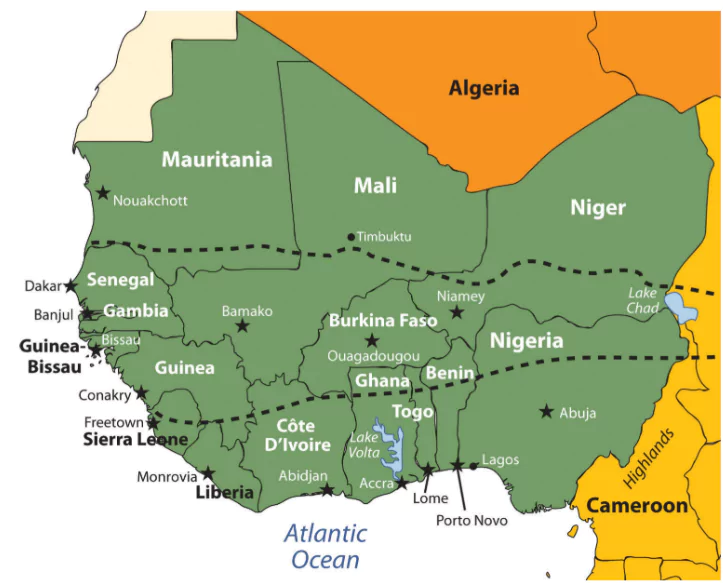
- West Africa is primarily a political and economic designation and comprises:
- Benin, Burkina Faso, Cape Verde, The Gambia, Ghana, Guinea, Guinea-Bissau, Ivory Coast, Liberia, Mali, Mauritania, Niger, Nigeria, Senegal, Sierra Leone, and Togo.
Strategic Importance of Nigeria
- Nigeria is the largest economy and democracy in Africa.
- It serves as a regional hegemon in West Africa and holds significant influence in the African Union.
- Nigeria is regarded as a democratic role model and has mediated disputes on the African continent.
- It is a key partner for India in advancing South-South cooperation and strengthening the Global South.
|
Enroll now for UPSC Online Course
India Africa Facts
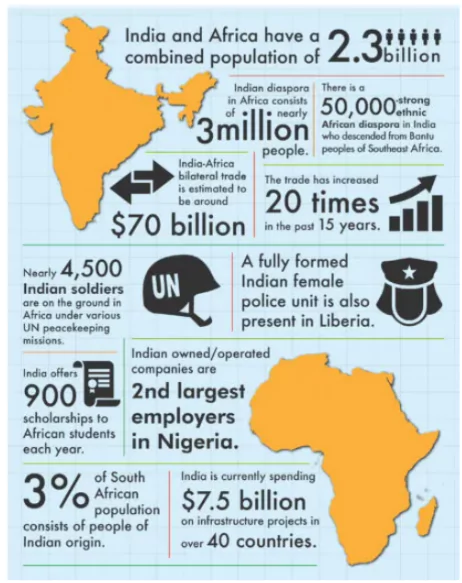
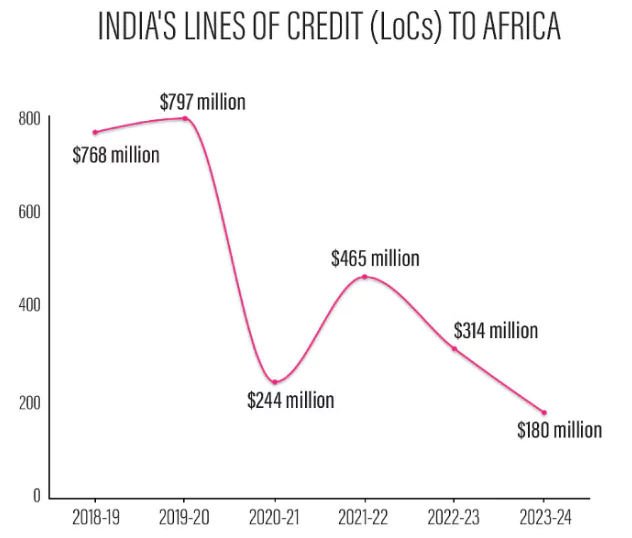
India Africa Relations
- Historical Relations: India’s fight against decolonisation and apartheid, and consistent efforts to serve as a voice of developing countries through the Non-Aligned Movement (NAM).
- Non-Aligned Movement (NAM) was founded in 1961 with the view to advancing the interests of developing countries in the context of Cold War confrontation.
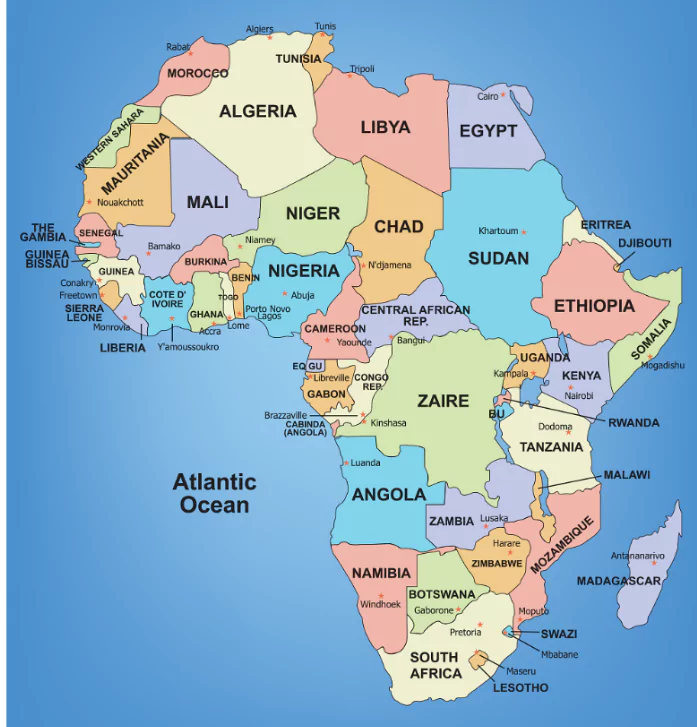 India Africa Forum Summit: First held in New Delhi in 2008, it marked India’s initial diplomatic efforts to seek a comprehensive partnership with the African bloc of nations as a whole.
India Africa Forum Summit: First held in New Delhi in 2008, it marked India’s initial diplomatic efforts to seek a comprehensive partnership with the African bloc of nations as a whole.
- Kampala Principles: Outlined in 2018, they serve as a guiding framework for India’s engagement with the continent.
- India-Africa Trade Cooperation: As per a paper by the International Monetary Fund, as of 2022, India was the third-largest trading partner for Africa, accounting for 7 percent of exports ($32.3 billion) and 5 percent of imports ($28 billion).
- Bilateral trade between India and Africa surged to US$ 98 billion in 2022-23, marking significant growth from the previous year’s US$ 89.6 billion.
- Africa, through the African Continental Free Trade Area (AfCFTA), is putting in place the appropriate rules of origin to assure their optimization.
- This will provide a unified continental market that Indian firms can easily access and tap into—potentially increasing the scope and level of India’s engagement with Africa.
- Concessional Financing: India extended concessional loans exceeding USD 12.37 billion.
- GoI has extended 196 LOCs worth US$ 12 billion to 42 African countries.
- Infrastructure: The Asia-Africa Growth Corridor (AAGC) was launched by India to enhance cooperation with African countries in partnership with Japan.
- India’s cumulative investments in Africa are estimated at around $75bn to date, spanning IT to critical minerals.
- Defense: India Africa Defence Dialogue (IADD) has been institutionalised to be held once every two years to explore new areas of convergence for mutual engagement.
- It includes capacity building, training, cyber security, maritime security and counter terrorism.
- The Indian army is working as a UN peacekeeper and plays a peace-building role in Africa (DRCongo, Ethiopia-Eritrea border, Sudan and other), building infrastructure and de-mining land.
- Education: ‘Study in India’ was launched to attract students from neighboring and African countries.
- India has granted 42,000 scholarships since the 2015 India Africa Forum Summit (IAFS)-III.
- The first foreign campuses of National Forensic Sciences University (NFSU) in Uganda and of IIT Mumbai were established in Tanzania.
- Health and Medical Tourism between India and Africa: India was the third-largest investor in Africa’s healthcare sector from 2010–2019, accounting for a 19 percent share.
- Made in India’ COVID-19 vaccines have been exported to 42 African countries from January 2021 to March 2023.
- India has become a top medical tourism destination, with 19.5% of African tourists visiting for medical reasons in 2020.
- Humanitarian assistance: India has provided humanitarian assistance to address food deficits, floods, and other needs.
- India sent 1,000 metric tons of rice to Malawi, 1,300 metric tons of maize to Zambia, and 1,000 metric tons of rice to Zimbabwe to help with food security.
- India also sent $1 million in flood relief assistance to Kenya, including medical aid, baby food, water purification supplies, and more.
Opportunities for India in Africa
- Expanding Bilateral Trade: Strengthen trade partnerships across sectors like agriculture, mining, and energy.Africa is a significant destination for Indian pharmaceuticals, which constitute around 18.5% of India’s exports to the region.
Check Out UPSC CSE Books From PW Store
About KABIL
- KABIL stands for Khanij Bidesh India Limited, a joint venture company that was formed to ensure a reliable supply of critical minerals to India.
- KABIL was incorporated in 2019 under the Companies Act of 2013.
- It is a joint venture between three government enterprises:
- National Aluminium Company Ltd. (NALCO), Hindustan Copper Limited (HCL), and Mineral Exploration & Consultancy Limited (MECL).
|
- Investment in Infrastructure Development: Leverage India’s expertise in infrastructure development for building roads, railways, and power projects in Africa.
- Africa requires investments of over $100 billion annually for infrastructure, presenting an untapped market for Indian companies.
- Adani Group’s $736 million agreement with Kenya Electricity Transmission Company to construct 388 kilometers of high-voltage transmission lines.
- Securing Critical Minerals: Enhance access to critical minerals like lithium and cobalt, crucial for India’s renewable energy and EV goals.
- Africa holds 30% of the world’s known critical mineral reserves, and India has already initiated partnerships, such as KABIL’s lithium exploration agreements in Argentina (via African partnerships).
- Food Security and Agricultural Cooperation: Collaborate on agricultural technologies, food processing, and irrigation to address Africa’s dependence on food imports.
- Africa’s food import bill was $43 billion in 2022, while 282 million Africans are undernourished, highlighting the need for agricultural transformation.
- Renewable Energy Collaboration: Develop solar and renewable energy projects under the International Solar Alliance (ISA).
- India has pledged $2 billion for solar energy projects in Africa. Solar energy initiatives can help electrify Africa’s 600 million people currently without access to electricity.
- Digital Transformation and Start-ups: Expand India’s digital payment systems, e-governance models, and technology start-ups to Africa.
- Africa has over 1.2 billion mobile subscribers, making it an attractive market for Indian digital solutions like UPI, Aadhaar, and Co-WIN platforms.
- Strengthening Health and Pharmaceutical Ties: Increase pharmaceutical exports and support healthcare infrastructure development in Africa.
- Indian generics account for 20% of Africa’s pharmaceutical imports. The continent’s health care market is projected to grow to $259 billion by 2030, driven by rising demand for affordable medicines.
- Political and Strategic Alliances: Reinforce India’s diplomatic ties and support African nations in global forums like the WTO and UN.
- India was instrumental in securing the African Union’s permanent membership in the G20, demonstrating its role as a global advocate for African interests.
Chinese involvement in Africa
Economic Relations:
- Trade: Africa’s largest trading partner, with trade volumes exceeding $282 billion in 2023. This trade is primarily driven by Africa’s abundant natural resources like oil, minerals, and agricultural products.
- Investment: Emerged as a major investor in Africa, particularly in infrastructure projects like roads, railways, ports, and dams. This investment has been facilitated through loans and direct investments from Chinese state-owned enterprises.
- The 9th Forum on China-Africa Cooperation (FOCAC) (2024) in Beijing provides key insights into Africa’s evolving strategic thinking and presents opportunities for India to strengthen its engagement with Africa.
- Debt: While China’s investments have boosted economic growth in some African countries, it has also led to concerns about debt sustainability.
Political Influence:
- Diplomacy: Actively engaged with African countries through diplomatic channels, fostering strong bilateral relationships. This engagement is often based on the principles of non-interference in domestic affairs and mutual respect.
- Soft Power: Utilized cultural exchanges, aid programs, and media outreach to enhance its soft power in Africa. This includes initiatives like the Confucius Institutes and scholarships for African students to study in China.
- Security Cooperation: Engaged in security cooperation with some African countries, providing military equipment and training.
Nigeria-China Relations
- Nigeria has over 200 Chinese companies operating within its borders.
- China has invested $47 billion in 22 major infrastructure projects in Nigeria, including the Lekki Deep Sea Port, Abuja Light Rail, and airport terminal expansions.
- As of March 2020, Nigeria owed $3.121 billion in Chinese loans, which accounted for 11.28% of its external debt.
- Chinese technology company Huawei has a significant presence in Nigeria, having trained over 2,000 Nigerian youths and 1,000 civil servants in cybersecurity and related fields.
- China is also active in Nigeria’s mining sector, building the country’s first lithium-processing plant.
|
Check Out UPSC NCERT Textbooks From PW Store
Challenges in India-Africa Relations
- Limited Trade Integration: Despite being Africa’s fourth-largest trading partner, India-Africa trade is only $90.5 billion (2022-23), compared to China-Africa trade, which surpassed $250 billion in 2021.
- Africa’s intra-regional trade under the African Continental Free Trade Area (AfCFTA) offers immense potential, but India’s engagement in these frameworks is limited.
- Geopolitical Rivalries: Africa has become a battleground for global powers like China and the US, competing for access to resources and markets.
- China’s Belt and Road Initiative (BRI) has financed infrastructure projects across Africa, such as railways in Kenya and Ethiopia, leaving India to play catch-up.
- Kenya cancelled multimillion-dollar airport expansion and energy deals with Adani Group after U.S. bribery and fraud indictments.
- Governance and Security Issues: Africa faces challenges like political instability, terrorism, and corruption, particularly in the Sahel region.
- Between 2020 and 2023, there were 9 coups in seven African countries, including Sudan, Niger, and Burkina Faso, complicating diplomatic relations.
- Limited Impact of Development Cooperation: India’s Lines of Credit (LoC) and capacity-building initiatives often lack strategic integration, limiting their impact.
- Projects like Pan-African e-Network have improved connectivity but failed to address larger systemic challenges like poverty or food insecurity.
- Healthcare and Pharmaceutical Challenges: India supplies 62% of Africa’s pharmaceutical imports, but COVID-19 exposed vulnerabilities in global supply chains.
- African nations faced significant delays in accessing vaccines and medicines due to supply chain disruptions.
- Tainted syrup medicine imported from India was the cause of an outbreak of kidney failure that killed more than 60 children in Gambia 2023.
- Cultural and Educational Barriers: Instances of discrimination against African students in India and complaints about the quality of education deter cultural and educational exchanges.
- While 95,000 African students study in China, India’s Study in India initiative has failed to attract significant numbers.
- Climate Change and Food Insecurity: Africa’s 282 million undernourished population (2022) and increasing climate-related disasters demand urgent attention.
- The Horn of Africa faces severe droughts, exacerbating food insecurity and forcing India to address humanitarian needs.
Way Forward for India-Africa Relations
- Boosting Economic Cooperation: Diversify trade portfolios by focusing on sectors like renewable energy, technology, and healthcare.
- Strengthening Engagement: The last India-Africa Forum Summit (IAFS) was held in 2015. India must convene IAFS-IV soon to capitalize on the African Union’s inclusion in the G-20 under India’s presidency.
- An India-African Union Track 1.5 Dialogue can help address mutual concerns, with Addis Ababa (African Union’s seat) as a potential host for IAFS-IV.
- Setting up an AU regional office in New Delhi would facilitate regular consultations.
- Enhancing Security Cooperation: Increase collaboration in counter-terrorism, maritime security, and cybersecurity.
- Addressing Food and Healthcare Needs: Partner with African nations on sustainable agriculture and boost pharmaceutical manufacturing within Africa.
- Leveraging Cultural and Educational Ties: Greater interaction between universities, think tanks, civil society and media organisations in India and select African countries is needed.
- Establish a National Centre for African Studies in India and liberalize visas for African students.
- Trilateral and Multilateral Cooperation: Foster trilateral initiatives like the India-Brazil-South Africa (IBSA) Fund to address Africa’s developmental challenges.
- Sustainable Development Initiatives: Promote renewable energy and climate action through platforms like the International Solar Alliance (ISA).
- Leveraging India’s Digital Strengths: India’s digital stack (e.g., UPI, biometrics, Jan Dhan technology) can be replicated in African nations.
- UPI and RuPay services already operate in Mauritius, with countries like Kenya, Namibia, Ghana, and Mozambique showing interest.
- Support for Industrialization and Value Addition: India must focus on creating higher value-added investments in sectors like agriculture, pharmaceuticals, and manufacturing.
- Indian companies can contribute by establishing manufacturing bases, promoting farm mechanization, food processing, and cold storage infrastructure.
Enroll now for UPSC Online Classes
Conclusion
India-Africa relations hold immense potential for fostering mutual growth, addressing global challenges, and promoting South-South cooperation. By overcoming existing challenges and focusing on strategic collaboration in trade, security, and development, both regions can build a resilient and inclusive partnership that benefits their populations and contributes to a balanced global order.
Additional Reading: India-Nigeria Relations, China-Africa Cooperation
![]() 5 Dec 2024
5 Dec 2024
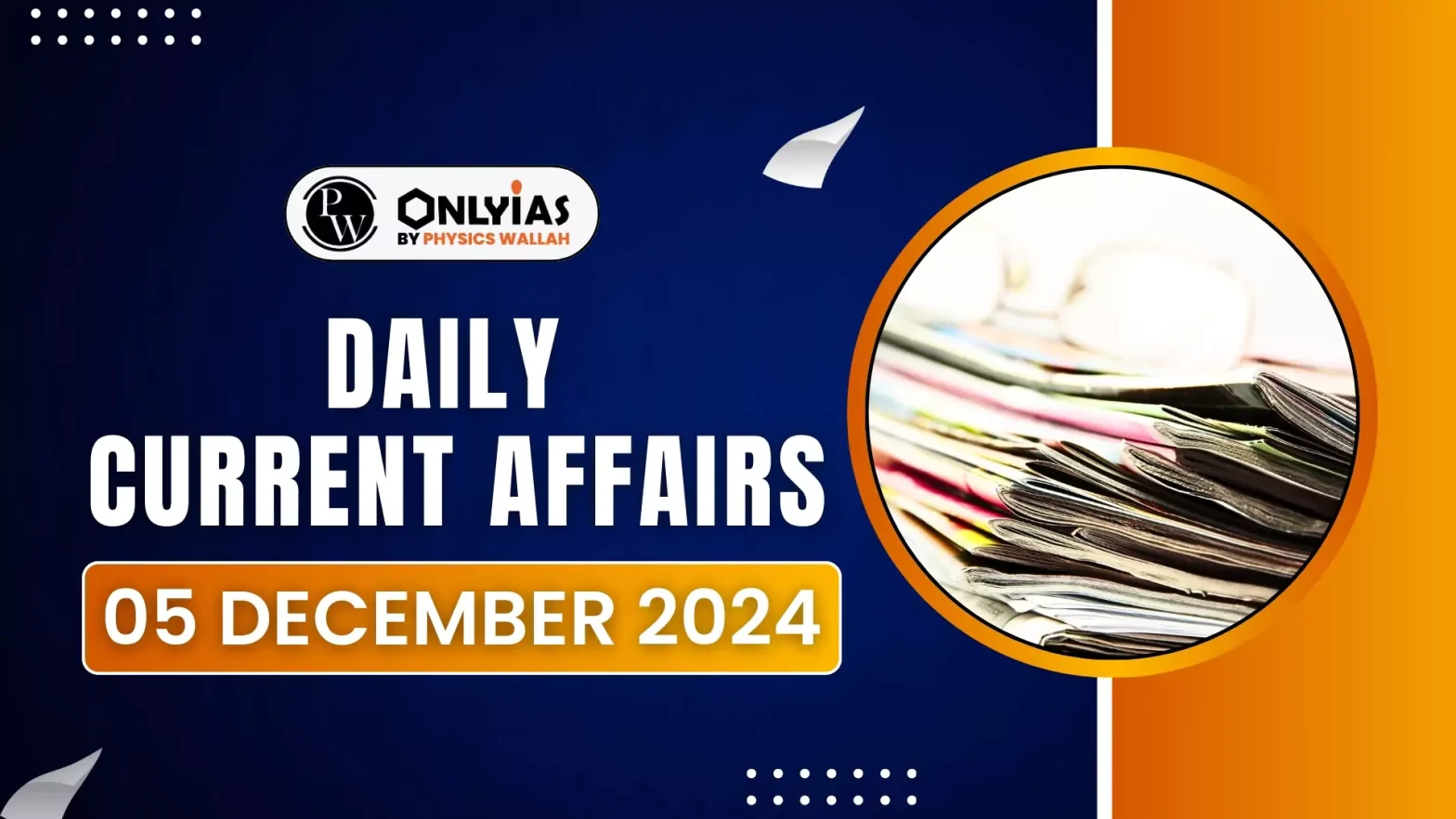


 India Africa Forum Summit: First held in New Delhi in 2008, it marked India’s initial diplomatic efforts to seek a comprehensive partnership with the African bloc of nations as a whole.
India Africa Forum Summit: First held in New Delhi in 2008, it marked India’s initial diplomatic efforts to seek a comprehensive partnership with the African bloc of nations as a whole.
